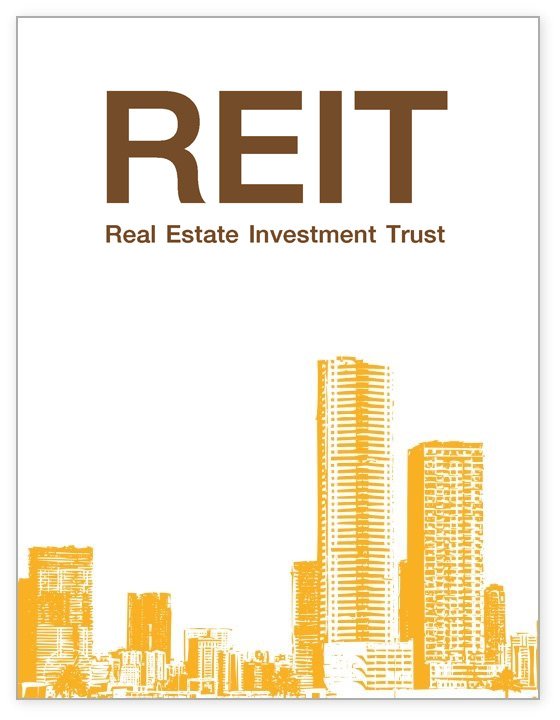
Real Estate Investment Trust
(Real Estate Investment Trust: REIT)
A REIT is a type of “trust” where a trustee is determined its true owner on behalf of its beneficiary and does not have a juristic person status. The trust settlor will eventually become the REIT Manager (RM) whom will offer trust units to the public. Once received capital from the sale of trust units, the RM will entrusted the following fund with the REIT’s designated trustee in order to establish the REIT. The trust deed will assign the REIT Manager to manage the REIT and the trustee to supervise the performance of the REIT Manager and administer the REIT in the best interest of the beneficiary.
Thai Version English VersionInvestment in REIT

The first group of investors of REIT consists of persons purchasing trust units in the initial public offering (IPO) through underwriters. The SEC does not specify the rules regarding allocation units, but the SEC permits any one investor or group of investors to invest in not more than 50% of the total trust units and of each tranche (if any).

After the IPO, the unit holders may trade the trust units on the SET by opening a trading account with a broker, similar to when trading securities. A REIT is traded under the real estate and construction sector in the property fund section.
Benefits of REIT
Owners of Property
Owners may raise capital from real property that is already generating revenue and use that capital to invest and/or develop new projects.
REIT
- Able to invest in varied types of real property, including real property abroad.
- Able to use leverage to invest and/or develop real property for higher returns.
- Able to partially develop its own real property.
- Allow a company with expertise in managing real estate to become REIT Manager.
- Adheres to international standard.
Investors
- Smaller investment is required than to directly invest in real property.
- Greater confidence in management under the management of real estate experts.
- Offer variety of ways to invest in real property.
Differences between REIT and Property Fund
Both REIT and property fund have the same objective, which is to invest in and seek benefits from real estate. However, the investment, supervision, as well as benefits of REIT are different from those of property fund in certain aspects, as follow:
 Property Fund |
 REIT |
|
|---|---|---|
| General | ||
| Legal Structure | Mutual fund | Trust |
| Minimum Size | Not less than 500 million Baht | Same |
| Number of Unit holder | Upon establishment: ≥ 250 After establishment: ≥ 35 |
Same |
| Listing of Unit | Investment units must be listed | REIT units must be listed |
| Management | Asset management company | REIT Manager, namely an asset management company or a company with expertise in managing real estate and is qualified according to the criteria set by the SEC |
| Registrar | Not required to be TSD | Requires consent of the SET |
| Investment | ||
| Type of property in which investment can be made | Only ones listed on the SEC’s positive list | Not specified; however, the real estate shall not be used by the lessee to operate immoral or illegal business |
| Investment in real estate abroad | Not permitted | permitted |
| Development of real estate (Green-field project) | Not permitted | Not exceeding 10% of the total assets |
| Leverage limit | Not exceeding 10% of the net asset value (NAV) | Not exceeding 35% of the total assets and not exceeding 60% in the case REIT has received an investment grade. |
| Distribution and allocation of units | ||
| Distribution | At least 25% must be offered to the public, and units must be allocated to all free float subscribers equally, one board lot at a time, until all subscribed units are allocated (Small Lot First) | Not specified; allocated to free float REIT unit holders in accordance with the criteria for listing (no less than 20% of the total trust units and of each tranche (if any)) |
| Holding Restriction for Any Person or Group of Persons | No more than 1/3 of the total number of investment units | No more than 50% of the total number of REIT units and of each tranche (if any) |
| Disclosure | Similar to mutual funds | Similar to listed companies |
| Annual meeting of unit holders | Not specified | Annually, within four months from the end of the fiscal year |
| Codes concerning the acquisition and disposal of assets / related parties transactions | Resolution of unit holders not required | Resolution of unit holders required for transactions of a significant size, as prescribed |
| Maintaining listing status (free float) | Not specified | Having free float unit holders holding an aggregate of not less than 15% of the total REIT units and of each tranche (if any) |
| Tax |
|
|

